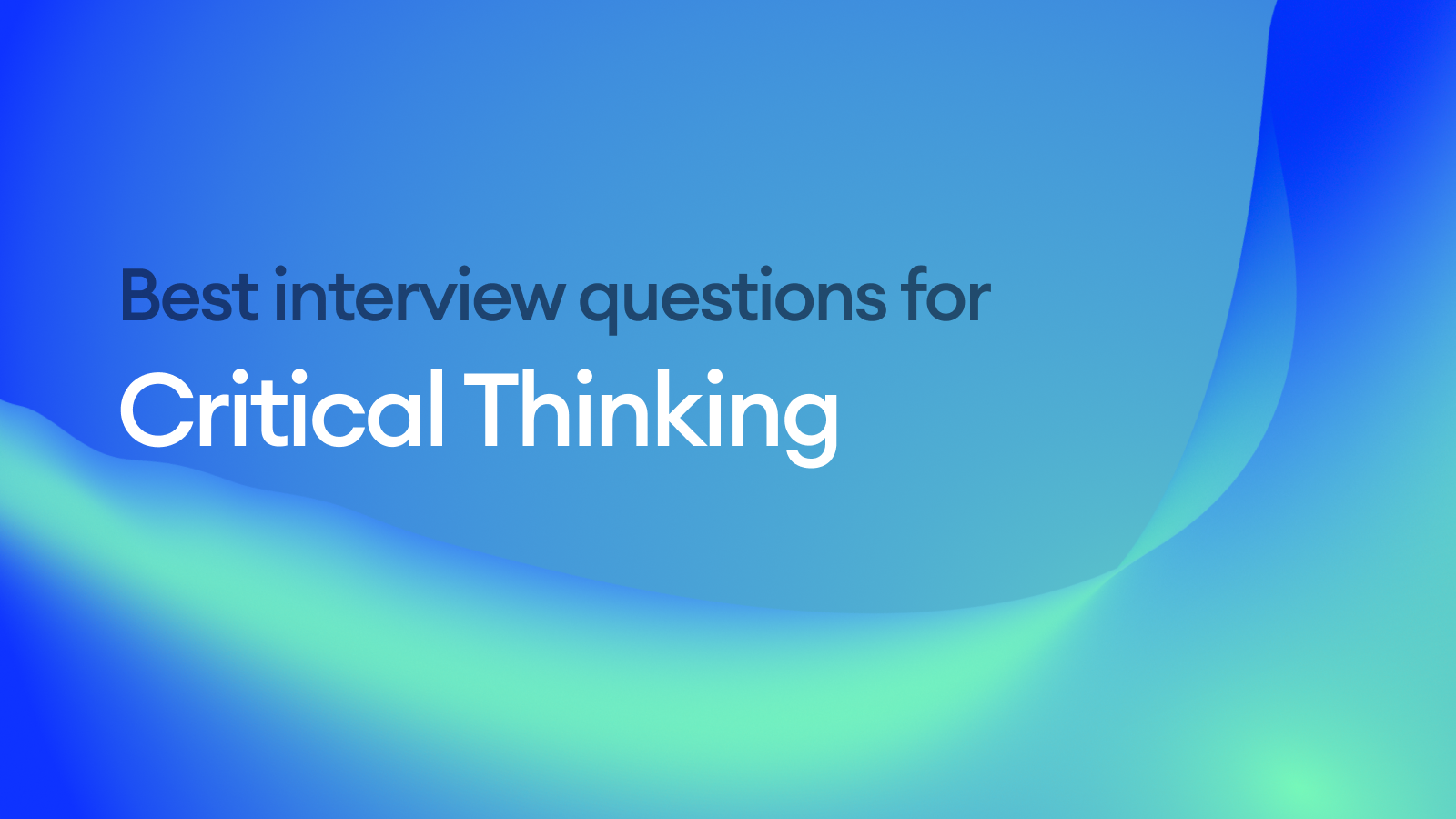Employers seek individuals who can analyze complex problems, make informed decisions, and navigate challenges with creativity and logic. Assessing a candidate's critical thinking abilities during the interview process is crucial to ensure they can contribute effectively to your organization's success. This article provides a comprehensive guide to the best interview questions for evaluating critical thinking, what to look for in candidate responses, and tips for effectively assessing this vital skill during hiring.
Critical Thinking Interview Questions
- Can you describe a challenging problem you faced at work and how you approached solving it?
- Tell me about a time when you had to analyze information from multiple sources to make a decision.
- How do you prioritize tasks when you have multiple deadlines to meet?
- Give an example of a situation where you identified a significant error or inefficiency in a process. What did you do about it?
- Describe a time when you had to think outside the box to achieve a goal.
- How do you handle situations where you don't have all the information you need to make a decision?
- Can you provide an example of how you evaluated the pros and cons of different solutions to a problem?
- Tell me about a time when you had to change your approach to a project based on new information or feedback.
- How do you ensure that your decisions are objective and free from personal bias?
- Describe a scenario where you had to persuade others to adopt your viewpoint or solution.
What to Look for in Answers
-
Problem-Solving Approach: Look for a clear, logical process the candidate used to address the issue. They should demonstrate methodical thinking and the ability to break down complex problems into manageable parts.
-
Analytical Skills: Candidates should show they can assess information critically, identify key factors, and evaluate different aspects before reaching a conclusion.
-
Creativity and Innovation: Effective critical thinkers often think outside the box. Look for examples where candidates proposed unique or unconventional solutions.
-
Decision-Making Ability: Assess how candidates weigh options, consider consequences, and make informed decisions based on available data.
-
Adaptability: Candidates should demonstrate flexibility in their thinking and the ability to adjust their strategies when faced with new information or changing circumstances.
-
Communication Skills: Strong critical thinkers can articulate their thought processes clearly and persuasively, making it easy for others to understand their reasoning.
-
Evidence of Bias Awareness: Look for indications that candidates are aware of their own biases and take steps to ensure their decisions are objective and fair.
Tips for Evaluating Critical Thinking During the Hiring Process
-
Use Behavioral Questions
Behavioral interview questions, which ask candidates to describe past experiences, are effective for uncovering how they've demonstrated critical thinking in real situations. These questions encourage candidates to provide concrete examples that reveal their problem-solving and analytical skills. -
Assess Problem-Solving Skills
Incorporate problem-solving scenarios or case studies into the interview process. Observe how candidates approach these challenges, the methods they use to analyze information, and the solutions they propose. This hands-on approach provides valuable insights into their critical thinking abilities. -
Listen for Logical Reasoning
Pay attention to how candidates structure their responses. Effective critical thinkers present their ideas in a logical, coherent manner, showing clear connections between their thoughts and actions. Look for a step-by-step reasoning process in their answers. -
Evaluate Their Ability to Reflect
Candidates who engage in self-reflection demonstrate a high level of critical thinking. They can assess their own performance, recognize mistakes, and learn from their experiences. Ask follow-up questions to gauge their level of self-awareness and willingness to grow. -
Look for Curiosity and Inquisitiveness
Individuals with strong critical thinking skills often display a natural curiosity and a desire to understand how things work. Assess their willingness to ask questions, seek out information, and explore different perspectives during the interview. -
Involve Multiple Interviewers
Having several interviewers assess a candidate can provide a more balanced evaluation of their critical thinking skills. Different perspectives can help identify strengths and weaknesses that a single interviewer might miss. -
Provide Time for Thoughtful Responses
Allow candidates time to think through their answers rather than expecting immediate responses. This approach encourages more thoughtful, well-considered answers that better showcase their critical thinking capabilities.
Summary
Assessing critical thinking during the interview process is essential for identifying candidates who can navigate complex challenges, make informed decisions, and drive your organization forward. By incorporating thoughtfully crafted interview questions, understanding what to look for in responses, and applying effective evaluation techniques, you can accurately gauge a candidate's critical thinking abilities. Investing time in this aspect of the hiring process ensures you select individuals who not only fit the role but also contribute to a culture of innovation and excellence within your team.


